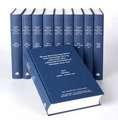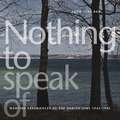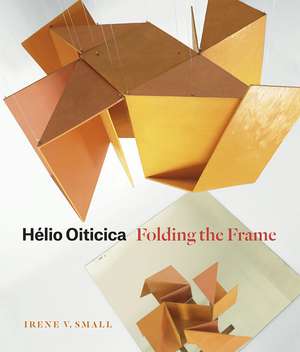Hélio Oiticica: Folding the Frame: Emersion: Emergent Village resources for communities of faith
Autor Irene V. Smallen Limba Engleză Hardback – 18 feb 2016
Hélio Oiticica (1937–80) was one of the most brilliant Brazilian artists of the 1960s and 1970s. He was a forerunner of participatory art, and his melding of geometric abstraction and bodily engagement has influenced contemporary artists from Cildo Meireles and Ricardo Basbaum to Gabriel Orozco, Dominique Gonzalez-Foerster, and Olafur Eliasson. This book examines Oiticica’s impressive works against the backdrop of Brazil’s dramatic postwar push for modernization.
From Oiticica’s late 1950s experiments with painting and color to his mid-1960s wearable Parangolés, Small traces a series of artistic procedures that foreground the activation of the spectator. Analyzing works, propositions, and a wealth of archival material, she shows how Oiticica’s practice recast—in a sense “folded”—Brazil’s utopian vision of progress as well as the legacy of European constructive art. Ultimately, the book argues that the effectiveness of Oiticica’s participatory works stems not from a renunciation of art, but rather from their ability to produce epistemological models that reimagine the traditional boundaries between art and life.
From Oiticica’s late 1950s experiments with painting and color to his mid-1960s wearable Parangolés, Small traces a series of artistic procedures that foreground the activation of the spectator. Analyzing works, propositions, and a wealth of archival material, she shows how Oiticica’s practice recast—in a sense “folded”—Brazil’s utopian vision of progress as well as the legacy of European constructive art. Ultimately, the book argues that the effectiveness of Oiticica’s participatory works stems not from a renunciation of art, but rather from their ability to produce epistemological models that reimagine the traditional boundaries between art and life.
Din seria Emersion: Emergent Village resources for communities of faith
-
 Preț: 156.84 lei
Preț: 156.84 lei - 8%
 Preț: 311.68 lei
Preț: 311.68 lei -
 Preț: 138.81 lei
Preț: 138.81 lei -
 Preț: 115.82 lei
Preț: 115.82 lei -
 Preț: 126.25 lei
Preț: 126.25 lei - 18%
 Preț: 2261.34 lei
Preț: 2261.34 lei -
 Preț: 115.53 lei
Preț: 115.53 lei -
 Preț: 548.71 lei
Preț: 548.71 lei - 8%
 Preț: 360.28 lei
Preț: 360.28 lei -
 Preț: 208.31 lei
Preț: 208.31 lei -
 Preț: 138.26 lei
Preț: 138.26 lei -
 Preț: 182.98 lei
Preț: 182.98 lei -
 Preț: 67.35 lei
Preț: 67.35 lei -
 Preț: 279.55 lei
Preț: 279.55 lei -
 Preț: 215.51 lei
Preț: 215.51 lei -
 Preț: 179.04 lei
Preț: 179.04 lei -
 Preț: 106.35 lei
Preț: 106.35 lei -
 Preț: 229.92 lei
Preț: 229.92 lei -
 Preț: 273.93 lei
Preț: 273.93 lei - 8%
 Preț: 346.31 lei
Preț: 346.31 lei -
 Preț: 94.22 lei
Preț: 94.22 lei - 18%
 Preț: 348.59 lei
Preț: 348.59 lei -
 Preț: 147.26 lei
Preț: 147.26 lei -
 Preț: 176.49 lei
Preț: 176.49 lei -
 Preț: 101.43 lei
Preț: 101.43 lei -
 Preț: 146.50 lei
Preț: 146.50 lei - 8%
 Preț: 564.99 lei
Preț: 564.99 lei - 18%
 Preț: 502.35 lei
Preț: 502.35 lei -
 Preț: 216.89 lei
Preț: 216.89 lei -
 Preț: 208.54 lei
Preț: 208.54 lei -
 Preț: 144.99 lei
Preț: 144.99 lei - 8%
 Preț: 563.24 lei
Preț: 563.24 lei -
 Preț: 185.37 lei
Preț: 185.37 lei -
 Preț: 120.81 lei
Preț: 120.81 lei -
 Preț: 167.85 lei
Preț: 167.85 lei -
 Preț: 160.63 lei
Preț: 160.63 lei -
 Preț: 183.89 lei
Preț: 183.89 lei - 9%
 Preț: 352.77 lei
Preț: 352.77 lei -
 Preț: 307.53 lei
Preț: 307.53 lei - 12%
 Preț: 290.56 lei
Preț: 290.56 lei - 9%
 Preț: 352.50 lei
Preț: 352.50 lei -
 Preț: 125.41 lei
Preț: 125.41 lei - 6%
 Preț: 324.95 lei
Preț: 324.95 lei - 9%
 Preț: 353.24 lei
Preț: 353.24 lei -
 Preț: 203.53 lei
Preț: 203.53 lei -
 Preț: 145.41 lei
Preț: 145.41 lei -
 Preț: 133.99 lei
Preț: 133.99 lei -
 Preț: 144.80 lei
Preț: 144.80 lei -
 Preț: 302.76 lei
Preț: 302.76 lei -
 Preț: 163.52 lei
Preț: 163.52 lei
Preț: 293.48 lei
Preț vechi: 313.52 lei
-6% Nou
Puncte Express: 440
Preț estimativ în valută:
56.16€ • 58.63$ • 46.48£
56.16€ • 58.63$ • 46.48£
Carte indisponibilă temporar
Doresc să fiu notificat când acest titlu va fi disponibil:
Se trimite...
Preluare comenzi: 021 569.72.76
Specificații
ISBN-13: 9780226260167
ISBN-10: 022626016X
Pagini: 304
Ilustrații: 50 color plates, 85 halftones
Dimensiuni: 216 x 254 x 28 mm
Greutate: 1.36 kg
Ediția:1
Editura: University of Chicago Press
Colecția University of Chicago Press
Seria Emersion: Emergent Village resources for communities of faith
ISBN-10: 022626016X
Pagini: 304
Ilustrații: 50 color plates, 85 halftones
Dimensiuni: 216 x 254 x 28 mm
Greutate: 1.36 kg
Ediția:1
Editura: University of Chicago Press
Colecția University of Chicago Press
Seria Emersion: Emergent Village resources for communities of faith
Notă biografică
Irene V. Small is assistant professor in the Department of Art and Archaeology at Princeton University, where she is also an affiliated faculty member in the Program in Latin American Studies and the Program in Media and Modernity.
Cuprins
Note on the Text
Introduction
1. The Folded and the Flat
2. The Cell and the Plan
3. Ready-Constructible Color
4. What a Body Can Do
Coda
Acknowledgments
Notes
Index
Introduction
1. The Folded and the Flat
2. The Cell and the Plan
3. Ready-Constructible Color
4. What a Body Can Do
Coda
Acknowledgments
Notes
Index
Recenzii
“Theoretically sophisticated. . . . Small persuasively situates Oiticica's work in a specific Brazilian sociocultural context and in the broader history of the Western modernist avant-garde. Highly recommended.”
“Hélio Oiticica brilliantly manages to fill gaps in knowledge about this important artist while challenging conventional wisdom through both archival research and adept analysis of art works. Small is wonderful at making points visually—by reference to certain details of art objects or documents—and does it in lucid, striking prose. This study will set a high bar for scholarship to come.”
“This impressive text on Oiticica is the most profound investigation of his work to date. I have rarely come across such a compelling and exhaustive account of a Brazilian artist from this period. Small’s book proves that Oiticica’s ‘folding the frame’ was much more than a simple experimental turn: it was, single-handedly, the ultimate folding of modern abstraction into its many unexpected, antithetical, and promising alter-forms.”
“Irene V. Small punctures and nuances some of the recurrent myths in accounts of the political commitments of Hélio Oiticica’s art practice in her monographic study of the artist.”
"By leading us through the mind of Oiticica—a task no less simple than a tour of Marcel Duchamp’s imagination—Small demonstrates that his engagement with the world was far more profound than merely asking viewers to participate in an artwork (although he certainly did this). Inviting us to behold Oiticica’s remarkably responsive and iconoclastic posture toward his environment, Small reveals that engaging with the structures of the fold and the frame prompted him to chart remarkably iconoclastic epistemologies.”
Hélio Oiticica: Folding the Frame is based on an impressive amount of meticulous archival research, evident for example in some previously unpublished illustrations. There is powerful analysis of some less well-known works, such as Ready Constructible (1978–1979) and MadeOn-The-Body-Cape, a project that Oiticica completed following his Whitechapel experience (1970), enriching our knowledge of Oiticica’s practice and writings. Small's work contains sophisticated language and continuous reference to a dense theoretical and historical heritage.
